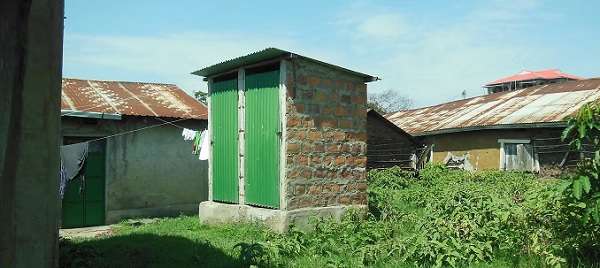
Sharing of sanitation facilities like toilets among households has been identified as one of the practices that compromise women’s and girls’ safety, privacy, and dignity. This was revealed in a new report released by the United Nations Children's Fund (UNICEF) and World Health Organisation (WHO).
The report from recent surveys conducted in 22 countries by the agencies, found that women and girls from households where toilets are shared, are more likely than men and boys to be subjected to the risk of sexual harassment and other safety risks due to walking alone at night in accessing such facilities.
Furthermore, inadequate WASH services increase health risks for women and girls and limit their ability to safely and privately manage their periods, the report indicated. It found that among 51 countries with available data, women and adolescent girls in the poorest households and those with disabilities are the most likely to lack a private place to wash and change.
Dr Maria Neira, WHO director, Environment, Climate Change and Health Department, said “The latest data from WHO shows a stark reality that 1.4 million lives are lost each year due to inadequate water, sanitation and hygiene.
“Women and girls not only face WASH-related infectious diseases, like diarrhoea and acute respiratory infections, they face additional health risks because they are vulnerable to harassment, violence, and injury when they have to go outside the home to haul water or just to use the toilet.”
The findings go on to show that a lack of access to hygiene also disproportionately affects women and girls. In many countries, women and girls are primarily responsible for domestic chores and caring for others – including cleaning, preparing food, and looking after the sick – which likely exposes them to diseases and other risks to their health without the protection of handwashing. Additional time spent on domestic chores can also limit girls’ chances of completing secondary school and gaining employment.
The surveys also discovered that around 2.2 billion people – or 1 in 4 – still lack safely managed drinking water at home and 3.4 billion people – or 2 in 5 – do not have safely managed sanitation. Around 2 billion people – or 1 in 4 – cannot wash their hands with soap and water at home.
The report notes some progress towards achieving universal access to WASH. Between 2015 and 2022, household access to safely managed drinking water increased from 69 to 73 per cent; safely managed sanitation increased from 49 to 57 per cent; and basic hygiene services increased from 67 to 75 per cent.
However, it was concluded that achieving the Sustainable Development Goal target for universal access to safely managed drinking water, sanitation, and basic hygiene services by 2030 will require a six-fold increase in current rates of progress for safely managed drinking water, a five-fold increase for safely managed sanitation, and a three-fold increase for basic hygiene services.
The agencies called for additional efforts to ensure that progress on WASH contributes towards gender equality, including integrated gender considerations in WASH programmes and policies and disaggregated data collection and analysis, to inform targeted interventions that address the specific needs of women and girls and other vulnerable groups.
Cecilia Sharp, UNICEF director of WASH and CEED, in her contribution condemned the culture that subjects girls to fetching of water for the households, arguing that it deprives them of learning and playing time, thereby exposing them to safety risk.
“Every step a girl takes to collect water is a step away from learning, play, and safety. Unsafe water, toilets, and handwashing at home robs girls of their potential, compromises their well-being, and perpetuates cycles of poverty.
“Responding to girls’ needs in the design and implementation of WASH programmes is critical to reaching universal access to water and sanitation and achieving gender equality and empowerment’, she stated.













